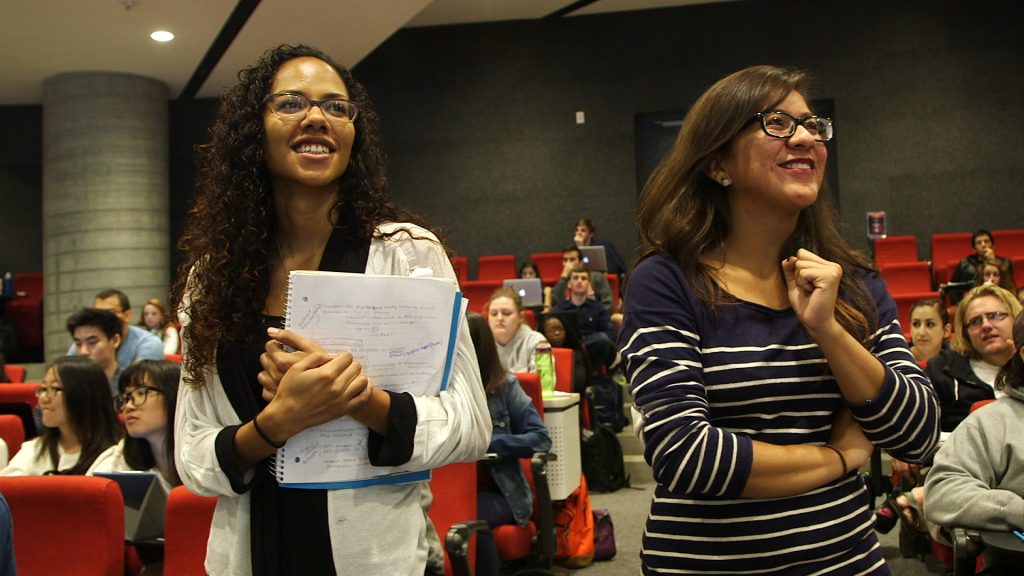
Misnomer No More: Teaching Assistants at Clarkson University
Editor’s note: This post is written by ACUE Chief Academic Officer Penny MacCormack, EdD.
The recent Chronicle of Higher Education article on Clarkson University brings helpful attention to important service performed by today’s graduate students. Across higher education, we focus time and resources on the professional needs of our faculty, both full-time tenure-track and part-time, or adjunct, educators. But what about our “third” teaching force—our graduate teaching assistants?
Estimates by the U.S. Bureau of Labor Statistics find over 135,000 graduate students employed as teaching assistants, holding more than 20 percent of part-time teaching positions in the United States. We believe that their classes, breakout sections, and labs provide students with important and personalized learning opportunities. But we should reexamine this assumption.
In a case of “cultural reproduction,” graduate students’ pedagogical preparation typically mirrors that of the profession they seek to enter. Doctoral training prepares them as subject matter experts and researchers, but often overlooks the basics of good teaching. Absent formal and comprehensive training in evidence-based teaching practices, they do what we’ve all done, in one way or another: teach the way we were taught and perhaps pick up some useful approaches along the way.
What a contrast to the extensive preprofessional training required in other fields—and that higher education itself delivers. We would never send a surgeon into an operating room without foundational training and practice in surgery. Law schools’ case methods and moot courts prepare aspiring attorneys for the actual work they will encounter. And yet with higher education, the canard persists. Simply because we excelled in our own schooling does not mean we know how to help others excel in theirs.
Clarkson University is challenging this status quo. Incoming graduate students participate in a pedagogy “boot camp.” The small private university in Potsdam, New York is requiring those science and engineering doctoral candidates who will also teach at the university to learn about effective teaching practices and implement the techniques in simulated classrooms. The effort is enhancing the quality of undergraduate instruction at Clarkson and will distinguish its PhDs when they enter the professoriate.
Participants shared with Chronicle reporter Vimal Patel how they learned to better connect with and motivate students, integrate technology into lessons, and adjust their teaching to the latest findings from the cognitive sciences. Practicing these skills is making their work more rewarding. As one participant noted, teaching has become “unusually fulfilling.”
Clarkson is responding to a candid understanding of who is responsible for student learning and the support necessary to promote student success. Its focus on STEM majors is a shrewd place to start, given the economic opportunities in these fields and the need to graduate more women and students from underrepresented backgrounds.
But Clarkson, and other institutions, need not stop there. Every student deserves, in fact is expecting and paying for, a high-quality college experience. This must include instruction replete with the evidence-based teaching practices that help students learn more, persist in their work, and graduate ready for what life will bring.

